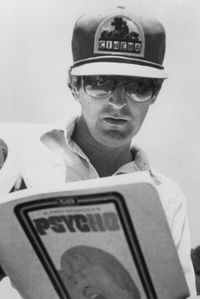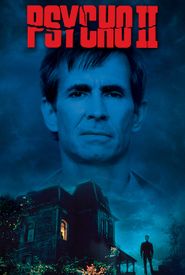Richard Franklin, a talented writer, director, and producer, was born on July 15, 1948, in Melbourne, Australia. From a young age, he was fascinated with cinema, making his first 8mm films at the tender age of 10. This early passion was further fueled by his viewing of Alfred Hitchcock's iconic film "Psycho" at the age of 12, which cemented his lifelong love for movies.
Franklin's formal education began at Monash University in Melbourne, where he studied and worked as an assistant cameraman at a television advertising company. He then took his talents to the United States, attending the University of Southern California in 1967. During his time at USC, Franklin was fortunate enough to secure a Q&A session with Hitchcock himself, following a screening of "Rope." This encounter led to an invitation to watch Hitchcock work on the set of "Topaz," a valuable learning experience for the young filmmaker.
Upon graduating from USC in 1969, Franklin returned to Australia, where he began his career in the film industry. He started as an assistant director on the popular TV series "Homicide," eventually going on to direct several episodes. Concurrently, he also worked on various short films and documentaries.
Franklin made his feature film debut with the raunchy sex comedy "The True Story of Eskimo Nell," followed by the equally provocative "Fantasm." His third movie, the horror feature "Patrick," proved to be a significant international success, winning the Grand Prize at the Avoriaz Fantastic Film Festival and earning a nomination for an AFI Award for Best Film.
"Roadgames," a tense and witty thriller, was the most expensive Australian film produced in the early 1980s. Franklin then directed the surprisingly solid and satisfying sequel "Psycho II," showcasing his versatility as a filmmaker. His other notable works include the delightful "Cloak and Dagger," the silly "Link," and the hugely enjoyable "F/X 2."
However, Franklin eventually grew weary of the Hollywood studio system and returned to his native Australia. He went on to create the acclaimed play adaptations "Hotel Sorrento" and "Brilliant Lies," with "Hotel Sorrento" winning an AFI Award for Best Adapted Screenplay and earning nominations for Best Film and Best Director.
In addition to his film work, Franklin also directed episodes of the TV shows "Flatland," "A Fine Romance," and "Beauty and the Beast." He was an accomplished drummer, having played with the Melbourne band The Pink Finks, and was a lecturer at the Swinburne School of Film and Television in Australia.
Tragically, Richard Franklin passed away on July 11, 2007, at the age of 58, due to complications from prostate cancer. Despite his untimely departure, his contributions to the film industry continue to be celebrated and remembered.










































